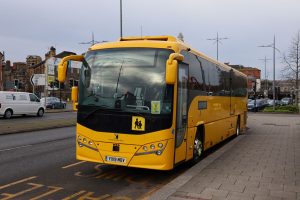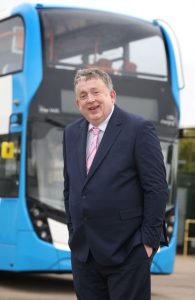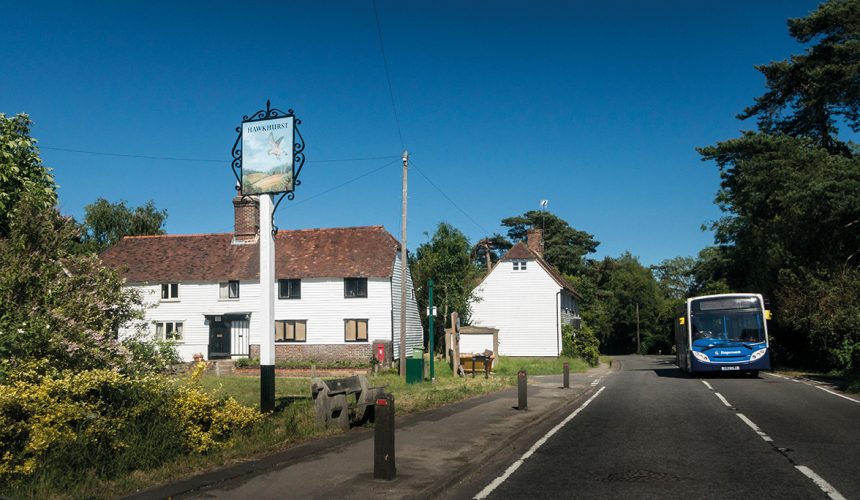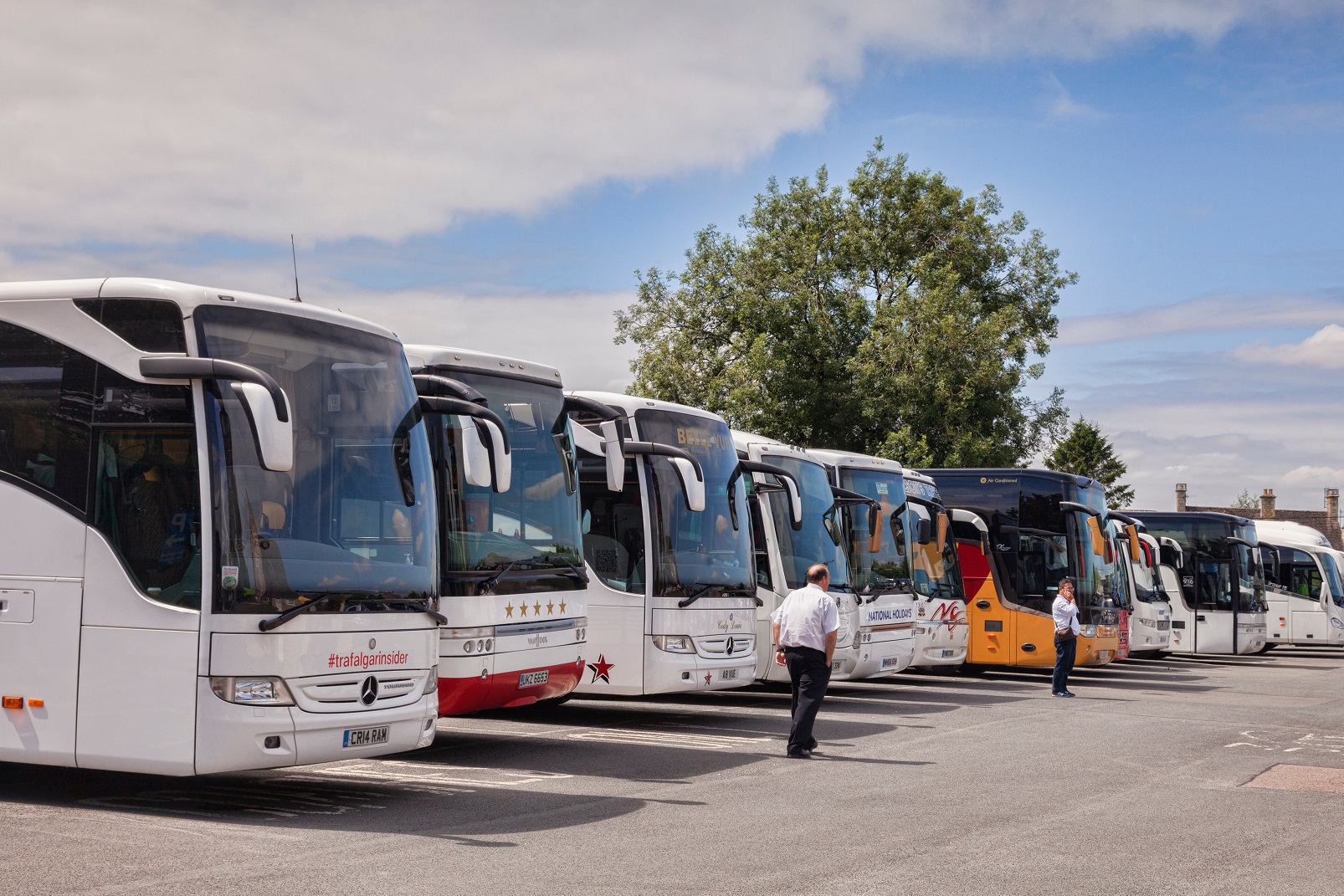When it comes to the integration of publicly funded transport, the industry is hoping a long-dormant concept can finally spring to life
In considering possible solutions to make bus services more commercially viable, particularly in rural areas, the idea of “Total Transport” is one that is often raised.
The concept involves integrating transport services which are ultimately paid for or subsidised by the public purse – be it through local or national government — but which are currently run independently of each other.
Bus Service Improvement Plan Plus (BSIP+) and Bus Service Operators Grant Plus (BSOG+) are two examples of such government subsidy, while non-emergency patient transport (NEPT) and home-to-school services are also funded, and local authorities are also paying for rural services for the general public.
Supporters of Total Transport believe that sharing resources – for example, the same bus and even service being used for school, healthcare and the public – would reduce empty vehicles, make massive cost savings and lead to other efficiency improvements.
Total Transport is by no means a new idea. In launching a nationwide series of pilot projects to explore the principle in 2015, the Department for Transport (DfT) noted it had been around for many years, but as nothing other than a “theoretical paper exercise”.
Since publishing its 2019 review of that government-funded scheme, which paid out £7.6 million in total to 36 local authorities, DfT has remained largely quiet on the subject and, despite the report noting some councils intended to continue elements of their procedures via their own resources, the idea has appeared largely dormant ever since.
Could change be on the horizon?
However, the time could be right for the concept to germinate. When routeone spoke to four key industry figures for a recent feature on the survival of rural services, each of them mentioned Total Transport as being a possible solution in future. Cuts to local council funding, the reduction of rural services and an advancement in demand-responsive transport (DRT) technology could form the right conditions for the first shoots of progress.
Becka Steven, Confederation of Passenger Transport (CPT) Senior Policy Advisor, says: “The future of bus in rural communities will include initiatives like this, and the sooner local transport authorities (LTAs) and operators are in a position to introduce pilots in more areas, the better.
“With ever-shrinking local government budgets, this is the ideal time for the bus sector to be promoting the idea of Total Transport budgets. The NHS now has a carbon reduction target that specifically includes staff and patient transport, which will hopefully give them an added incentive to get on board.”
![[5] Wiltshire Connect (1) DRT](https://www.route-one.net/wp-content/uploads/2023/11/5-Wiltshire-Connect-1-300x200.jpg)
Peter Nathanail, Commercial and Operations Director for operator Vectare, adds: “I think, as operators and local authorities together, we can be smarter. There’s an opportunity as budgets get squeezed.”
DRT services are run by 75% of local councils in England, according to recent research from the County Councils Network. But 95% of these councils say all of their services are running at a loss.
Dami Adebayo, Partnerships Lead at The Routing Company, which provides technology for DRT networks, hones in on Total Transport when asked how on-demand could be made sustainable in future. He says: “You have public transport, you have home-to-school transport, special education needs transport, non-emergency healthcare transport.
“They are, to a degree, all demand-responsive transport forms, but right now DRT can only ever influence one of them at a time because the teams operating these are running in silos.
“If we can get around the governance issues, the potential of DRT explodes quite quickly because the [vehicle] supply problem is nullified. The technology to do that is available today.”
What would be welcome is the establishment of local transport forums, which would be the conduit to bring services together – Becka Steven
The DfT report into the pilots in 2019 stated as background for the trials that around £2 billion per year in public funding was being provided and that, as this is commissioned and provided by separate organisations, it leads to a disjointed, inefficient approach.
It noted that, of that figure, £150 million was provided by the NHS for transport contracts to individual local Clinical Commissioning Groups, whose function has since been taken over by integrated care systems. BSOG (£250 million) and local bus services support (£278 million) were also listed, while a colossal £1 billion was spent on home-to-school transport.
The figures may have changed and mechanisms for allocation may have been tweaked since, but the fact remains there is opportunity to remove duplication of services and administrative overheads via a more combined approach.
Few in the industry are more passionate and knowledgeable about Total Transport than David Boden, Stagecoach East Commercial Director.
He was north of England chair for the councils who won bids in the pilot. As Group Manager for Transportation Services, for East Riding of Yorkshire Council, he says his work via that council’s pilot scheme saved a six-figure sum, while improving services.
He maintains that what he achieved “wasn’t rocket science”. He says: “The answer to rural transport is very much joined-up thinking. It’s about going back to the need of your customers and then asking, ‘how can one network of services provide that?’
He adds: “When you remove the duplication, you get some saved resource and what that means in a rural area is that either becomes a budget saving for the council or it allows it to provide more bus services.”
The challenges for the Total Transport movement
DfT’s 2019 review of the pilots noted that one of the biggest problems was that it takes time to find the right person to engage with in each organisation. More significant than that was that the health sector proved the most difficult to involve.
David agrees that the openness to the idea of Total Transport by the bus industry needs to be matched by that from the health sector. In particular, one issue appears to be health boards insisting patients are carried by medically trained professionals when that is not necessary in a significant proportion of cases and, indeed, often leads to delays.
“Why the pilots didn’t work as well as they could have done was that the transport people got it, but the health people didn’t,” he says.

Local authorities respond
Routeone contacted 13 of the authorities involved in the DfT pilots to request an update on any elements of Total Transport that had been continued and any future plans. After three weeks, only three had responded.
A Kent County Council (KCC) spokesperson says: “Total Transport is part of KCC’s long-term ambition to shift public transport services to a more sustainable way of operating.
“As we focus on our delivery of our commitments set out in our Bus Service Improvement Plan – funded by the Department for Transport – we will seek to learn the best way to work with our Enhanced Partnership stakeholders to plan for a future where Total Transport has a valuable role to play in keeping Kent moving.”

A spokesman for East Riding of Yorkshire Council adds: “East Riding’s Total Transport Pilot ended in 2017 and coincided with a review of the council’s supported bus network.
“It helped to create a network of local transport champions who assisted the council to modernise its supported bus provision, thus making moderate savings while still delivering appropriate services for our rural communities.
“This network has helped the council to continuously improve and expand our supported bus network in a cost-effective manner since that period. However, it did not achieve significant integration with other public sector providers, despite efforts on the council’s part to engage with the NHS and the ambulance trust’s patient transport service at that time.”
Transport for Greater Manchester points out that its service 356 (Saddleworth Rambler) was introduced using Total Transport funding. Some funding for the local fixed and on-demand services was also diverted for the Rambler, which connected the villages and included a link to Saddleworth School. It adds that its success led to it being expanded to replace other bus services.
What the bus sector needs to do

The bus sector is somewhat limited in what it can currently do to further the principles behind Total Transport, given that it requires the co-operation of the education and health sectors and local authorities.
However, Becka says: “What would be welcome is the establishment of local transport forums, which would be the conduit to bring services together.
“These could link to local transport plans that LTAs are currently developing, and it would be great to see all LTAs consider and appraise Total Transport as an option. I am very much hoping that we see a few Total Transport pilots over the next year or so to test how and where this works best.”
David adds: “It needs CPT to be forcing some quick wins. The way to start it as an industry is for us to prove even further how innovative we can be.”
He says working closely on a local basis with the rest of the transport industry, such as the Rail Delivery Group, will “start conversations”.
“We need, as a public transport industry, to keep pushing the boundaries of what we can deliver and then keep the pressure on via political stakeholders,” he adds.
The drive may need to come from government. As David says: “It needs first of all government level showing that modelling has been done to show this could save phenomenal amounts of money and asking, ‘So why aren’t you doing it?’ It needs politicians in local areas to be asking awkward questions.”
It‘s now the time for out-of-the-box thinkers to see this as achievable rather than just making up a million excuses why it can’t be done – David Boden
However, DfT responded this month on the topic by saying government has no plans for further Total Transport pilots, despite a spokesperson adding: “While the pilot schemes demonstrated challenges with implementing Total Transport principles, local authorities should continue to consider whether the approach could support their services, particularly in rural areas.”
Nevertheless, one of the greatest advocates of Total Transport says various factors make him more optimistic. David observes: “People say to me that this will never happen. At the end of the day, I’m very passionate about delivering for people and somebody’s got to try. If we all said, ‘it’s not going to happen’, and just curled up, we would never move forward in life.
“I’m at the most optimistic that I’ve ever been that, before I die in this industry, we will see integrated Total Transport thinking. Post–COVID, where all forms of public transport have significant financial pressures, local authorities understand Total Transport.
“It‘s now the time for out–of–the–box thinkers to see this as achievable rather than just making up a million excuses why it can’t be done. What it needs is somebody with enough political gravitas to kick it in the bottom and say, ‘Let’s make this happen.’”



























